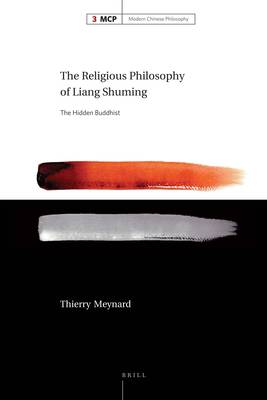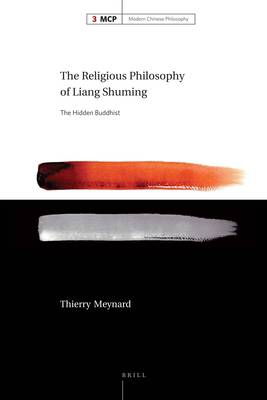
- Afhalen na 1 uur in een winkel met voorraad
- Gratis thuislevering in België vanaf € 30
- Ruim aanbod met 7 miljoen producten
- Afhalen na 1 uur in een winkel met voorraad
- Gratis thuislevering in België vanaf € 30
- Ruim aanbod met 7 miljoen producten
Zoeken
Omschrijving
Liang Shuming (1895-1988) is one of the most important Chinese philosophers in twentieth century China. Generally considered to be a Confucian, and even the last Confucian, the author argues that he was in fact a Buddhist. Liang's thoughts are analysed within the background of the intellectual debates on religion in republican China. He reshaped the Western concept of religion from the standpoint of Yogācāra Buddhism. Yet, he advocated for the present time Confucianism as the ethical religion that would lead ultimately to the Buddhist liberation. Examining Liang's religious belief sheds new light on his fascinating life, particularly his involvement in the Rural Reconstruction movement of the nineteen-thirties. It also explains why Liang was the only intellectual who dared to publically oppose Mao in the nineteen-sixties and seventies.
Specificaties
Betrokkenen
- Auteur(s):
- Uitgeverij:
Inhoud
- Aantal bladzijden:
- 242
- Taal:
- Engels
- Reeks:
- Reeksnummer:
- nr. 3
Eigenschappen
- Productcode (EAN):
- 9789004171510
- Verschijningsdatum:
- 29/10/2010
- Uitvoering:
- Hardcover
- Formaat:
- Ongenaaid / garenloos gebonden
- Afmetingen:
- 165 mm x 241 mm
- Gewicht:
- 498 g

Alleen bij Standaard Boekhandel
+ 448 punten op je klantenkaart van Standaard Boekhandel
Beoordelingen
We publiceren alleen reviews die voldoen aan de voorwaarden voor reviews. Bekijk onze voorwaarden voor reviews.








